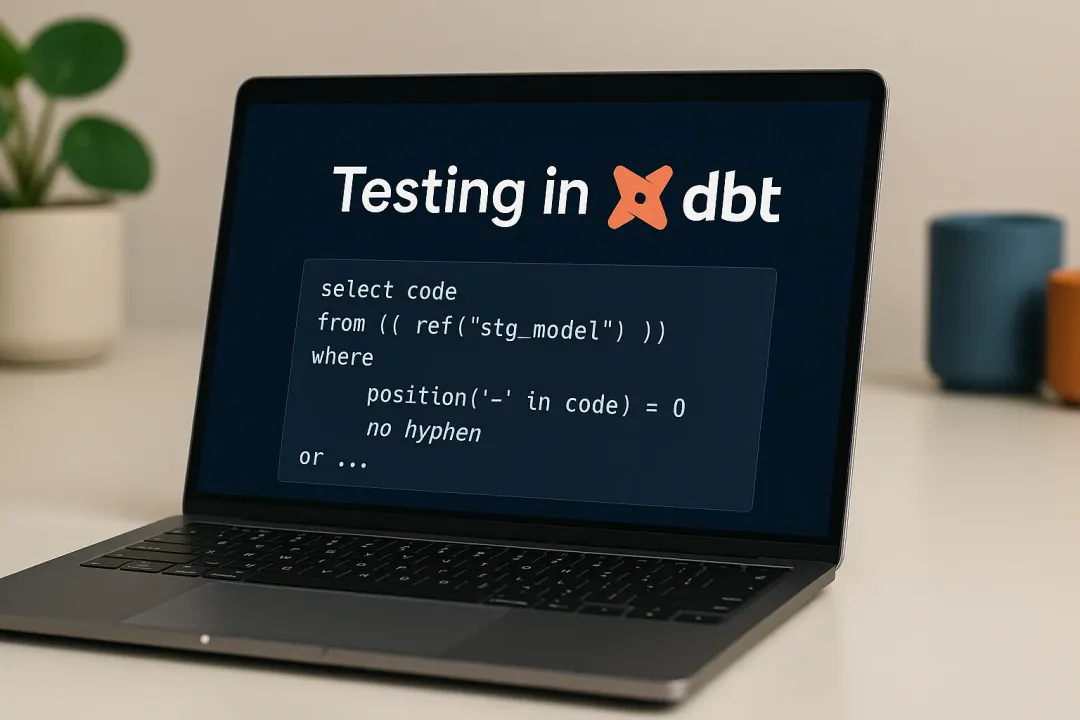
Sunscrapers Team
2 June 2023, 8 min read

What's inside
- What is DevOps, and how does it work?
- What kind of problems does DevOps solve?
- How is DevOps different from traditional IT?
- Benefits of DevOps for Organizations
- DevOps objectives
- DevOps lifecycle phases
- What should you learn before DevOps implementation?
- Who is a DevOps engineer?
- DevOps tools and technologies
- When to adopt DevOps?
- Conclusion
The popularity of DevOps has been on the rise, especially among large enterprises and innovative startups. What is DevOps exactly? Is it an approach, culture, movement, or combination? Does it mean the same thing to different people and organizations?
We prepared a detailed guide for DevOps beginners to shed some light on these questions. Read on to learn everything you need to know about this strong technology trend and discover how it could help improve processes at your organization.
What is DevOps, and how does it work?
The word "DevOps" combines "development" and "operations". This is the essence of DevOps – it aims to integrate development and operations teams, i.e., software development and IT teams.
Because it helps to deploy code to production faster and in an automated and repeatable way, this is the main value. DevOps accelerates the process of delivering new applications and services. It also helps businesses to enhance customer service and build a solid competitive advantage.
The alignment of development and IT operations is now a priority for many companies that want to speed up their delivery times and compete successfully in the market.
What kind of problems does DevOps solve?
To understand the value of DevOps, we need to take a closer look at the scenario where the development and operation teams work in complete isolation.
Here's what happens:
- Testing and deployment are isolated and carried out after design-build. That's why they often take more time than the actual build cycles. Team members spend much time on testing, deploying, and designing instead of building up the project.
- The code deployment is manual. The team needs to deal with lots of human errors in production.
- The development and operations teams follow separate timelines. Their lack of synchronization often causes further delays.
- Business stakeholders demand to increase in the speed of software delivery by business stakeholders. Teams need help to address this demand.
DevOps was created to address and solve these problems, leading to greater productivity and satisfaction in development and IT operations teams.
How is DevOps different from traditional IT?
To understand the value of DevOps, let's follow a scenario that compares it to a traditional software development model called waterfall.
- To learn more about waterfall vs. agile software development, read this guide: Project management methodologies: Agile vs. Waterfall vs. Scrum vs. Kanban.
Example scenario:
Let's assume we have an application. We want it to go live in two weeks, and 80% of the coding has been completed. The app is a new launch, and we have only begun buying servers to ship the code.
In the traditional process, the development team places an order for new servers and then begins to work on testing the app. On the other hand, the operations team needs to deal with the extensive paperwork required to deploy the infrastructure.
In the DevOps process, after placing the order for new servers, the development and operations teams collaborate on the paperwork for setting up these new servers. As a result, they benefit from greater visibility of infrastructure requirements.
Moreover, in DevOps, the projections about issues such as failover, redundancy, disaster recovery, or storage requirements are more accurate, thanks to the input from the development team.
When you follow the traditional process, the operations team needs to know what the development team is up to. As a result, the monitoring plan is developed according to a limited understanding of the project. In DevOps, the operations team is aware of the developers' progress and interacts with them to create a monitoring plan that reflects both the IT and business needs.
What happens when the application goes live? If a company follows the traditional way of building software, load testing may crash the application. As a result, its launch will be delayed. In DevOps, developers can test the application and fix issues or bottlenecks.
Benefits of DevOps for Organizations
- Continuous Integration and Continuous Delivery (CI/CD) – thanks to DevOps practices, agile development teams can implement CI/CD processes that help accelerate market time.
- Cost efficiency - the DevOps culture lowers the cost of the software development process and reduces the time to market.
- Predictability – thanks to DevOps, teams can significantly lower the failure rate of new releases.
- Reproducibility and maintainability – with DevOps, teams can easily version everything so that earlier versions can be restored at any time and provide smooth recovery if a new release crashes down or disables the system.
- Risk reduction – when it comes to the software delivery lifecycle, DevOps incorporates strong security aspects to reduce the risk of defects popping up throughout the lifecycle.
- Stability – DevOps helps ensure that a software system's operational state is more stable and secure.
DevOps objectives
The central goal of DevOps implementations is improving and streamlining the collaboration between various stakeholders.
It starts with planning and ends with delivery, implementing a wide range of delivery process automation to increase the frequency of deployment, achieve faster time to market, reduces the failure rate of new releases, and shorten the lead time between fixes.
DevOps lifecycle phases
It's impossible to talk about DevOps without mentioning the DevOps lifecycle. Here's a short overview of the DevOps lifecycle with its key events.
- Development
This stage is about software development, a process separated into smaller development cycles following the agile methodology. The DevOps team can accelerate the growth and delivery process by organizing the development work this way.
- Testing
At this stage, the Quality Assurance (QA) team uses various tools to identify and fix potential issues and bugs in a new code.
- Integration
This is when the team integrates a new functionality with the existing code. You can be sure that testing tasks are placed here as well. Continuous integration and testing of code are the prerequisites of constant development.
- Deployment
In this phase, the deployment process occurs continuously. The idea here is to perform in a way that ensures that any changes applied to the code don't affect the application's functioning.
- Monitoring
In this final phase, the operations team solves problems like inappropriate system behavior or bugs found in production by using a wide range of monitoring tools.
What should you learn before DevOps implementation?
Adopting DevOps is a process riddled with challenges. Fortunately, several principles and rules exist to get the best results:
- DevOps fosters a culture that focuses on continuous improvement to minimize waste. It continuously accelerates the progress of products or services offered.
- A DevOps team should provide continuous performance support to increase product quality and improve the team's level of responsibility and ownership.
- Automation is a vital principle of any DevOps process, applicable to software development and the entire infrastructure landscape.
- Close team collaboration is another crucial element of DevOps. Designers, developers, testers, and the operations team need to work in a single unit.
- A DevOps team needs to have solid monitoring and testing procedures.
- This team needs to be customer-centric. After all, the team is responsible for constantly improving products and services with customer needs in mind.
Learn more in this guide: The ultimate guide to DevOps (+ 15 DevOps best practices from our team)
Who is a DevOps engineer?
Over time, the DevOps approach caused the emergence of a brand-new role: a DevOps engineer. This IT professional works with software developers, system operators, and IT staff to administer code releases. The person filling this role should have specific technical and soft skills. After all, they need to communicate and collaborate well with development, testing, and operations teams.
DevOps engineers may need to code occasionally, so it's important that they know the software development languages used in the project.
A DevOps engineer works with the development team to build the connections between code elements like software development kits or libraries. Moreover, this role also performs system troubleshooting and problem-solving across various platforms and application domains.
A DevOps engineer also needs to know how to manage projects effectively, increase project visibility, analyze, design, and evaluate automation systems, and improve the overall quality of software products.
To demonstrate their skills, DevOps engineers often acquire DevOps training certification from:
- Amazon (AWS Certified DevOps Engineer),
- Red Hat (many types of certifications like Red Hat Certificate of Expertise in Platform-as-a-Service or Red Hat Certificate of Expertise in Container Administration),
- Microsoft Academy,
- DevOps Institute.
DevOps tools and technologies
DevOps automation is a process that aims to automate all the testing processes and configure them for maximum speed and agility.
That's why DevOps teams take advantage of tools for:
- Infrastructure automation (tools like Amazon Web Services),
- Deployment automation (Jenkins),
- Performance management (App Dynamic),
- Configuration management (Chef),
- Log management (Splunk),
- Monitoring (Nagios).
When to adopt DevOps?
DevOps services work best for large distributed applications like e-commerce websites or cloud-based apps. If your application needs to provide strict access controls in the production environment or a detailed change management policy, DevOps might not be the best approach.
Conclusion
DevOps is more than just an approach; it's a real cultural change that is here to stay. As companies aim to deliver bug-free applications that deliver outstanding user experiences quickly, they need the right tools. And a DevOps team is the best answer to such needs.
Are you looking for a development team supported by a DevOps engineer? Get in touch with us. Thanks to our robust processes, we accelerate software development and maintain consistent quality.


